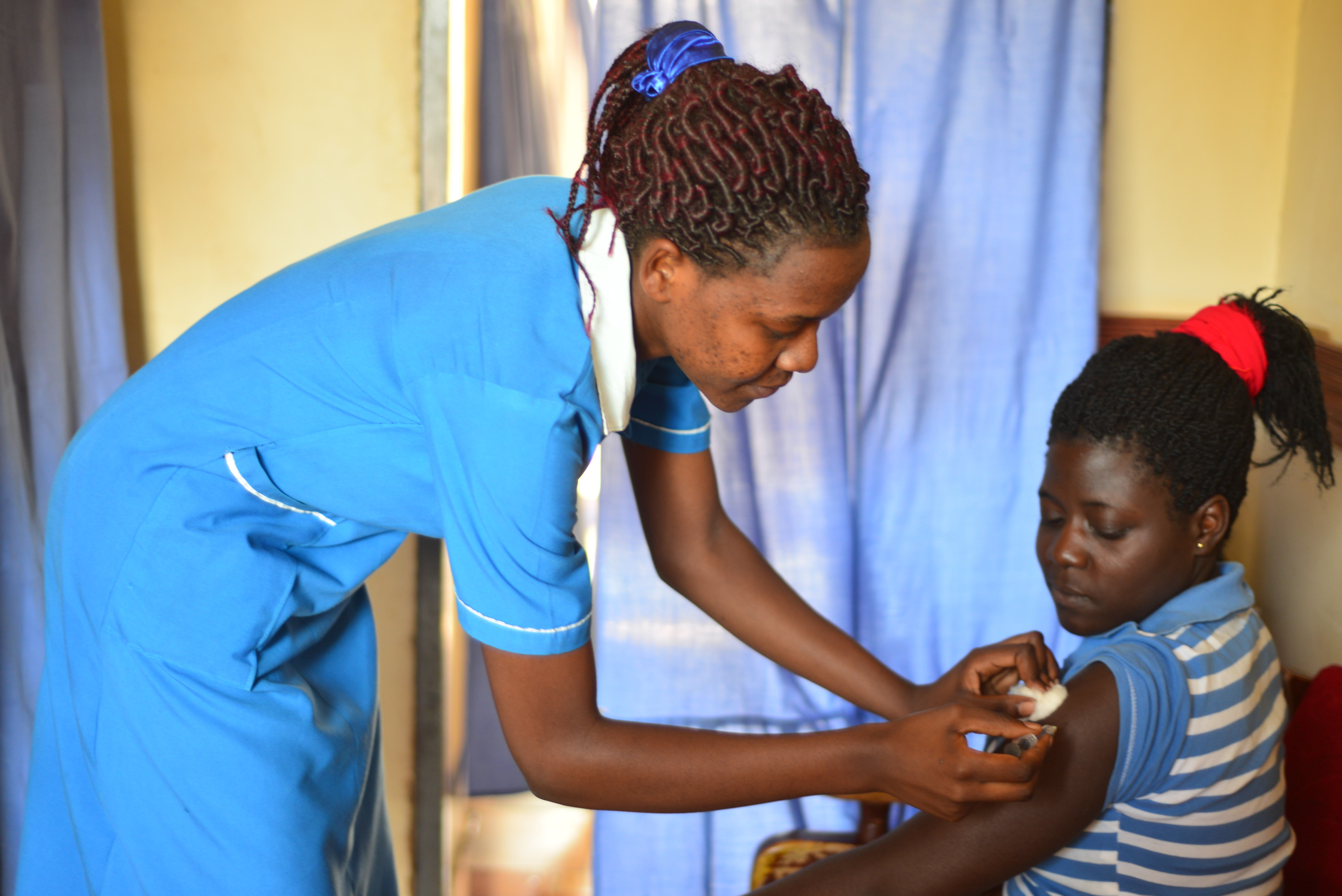UNFPA and Management Science for Health (MSH) have signed a memorandum of understanding (MoU), pledging to work together to strengthen the national supply chain for reproductive health commodities in Uganda.
The MoU was signed by UNFPA Representative Mr. Alain Sibenaler and MSH chief of party Dr. Eric Lugada, at the UNFPA Uganda Country office.
As part of the provisions of the MoU, UNFPA and MSH agreed to leverage each other's technical capacity, knowledge, networks and experience in innovation to support the Ministry of Health to address supply chain gaps in monitoring, reporting, forecasting and financing for reproductive health commodities.
Poor reproductive health constitutes a significant portion of the disease burden in Uganda, yet access to essential reproductive health supplies is often limited. For instance, according to the Uganda Demographic and Health Survey, three out of ten women at risk of unintended pregnancy who would like to space or limit their births are not using modern contraception to do so. Inadequate access to family planning and other essential reproductive health commodities is in part due to challenges with the supply chain including inadequate financing, and challenges related to logistics systems, procurement, and service delivery.
“I am excited that two partners who share the same vision of improving the supply chain for essential commodities are coming together to address these long-standing challenges. Convening and collaboration are key in enabling us realize our mandate. I am glad we have a strong partner to work with on this,” said Mr. Alain Sibenaler the UNFPA Representative.

UNFPA and MSH will collaborate on a number of initiatives as a means to strengthen the supply chain for commodities, under MSH’s USAID/Uganda Strengthening Supply Chain Systems Activity. These include supporting the Ministry of Health to implement the one warehouse, one facility strategy, to provide a centralized mechanism of procuring, storing, distributing, ordering, and monitoring of reproductive commodities at all levels of the health system.
UNFPA and MSH will also support the roll-out of the integrated web-based ordering of reproductive health commodities alongside the already functional system for ordering and reporting of HIV, Tuberculosis and laboratory commodities and supplies. Additionally, MSH will support UNFPA to develop the supervision, performance assessment and recognition strategy for reproductive health which will focus on building capacity of health workers at health facility and community levels to provide essential services.
“Our aim is to support the country to advance good governance, data informed policies and regulations and strengthen local capacity to promote self-reliance through a functional supply chain system, by working with key actors such as UNFPA,” said Dr. Eric Lugada, MSH chief of Party.”
The signing of the MoU comes at an opportune time, as UNFPA and its partners embark on the implementation of the 9th Government of Uganda /UNFPA Country Programme. Under the Country Programme UNFPA commits to strengthening supply chain management, including capacity to monitor, track, and report on reproductive health commodities and supplies to the last mile.
Compiled by Martha Songa, Cedric Muhebwa





